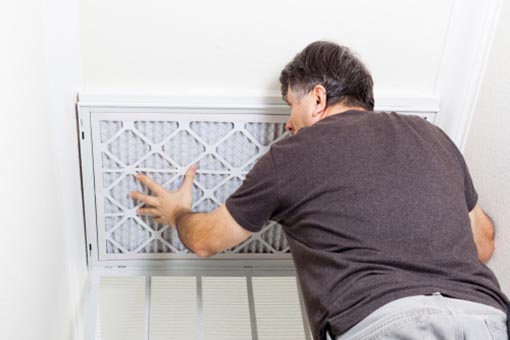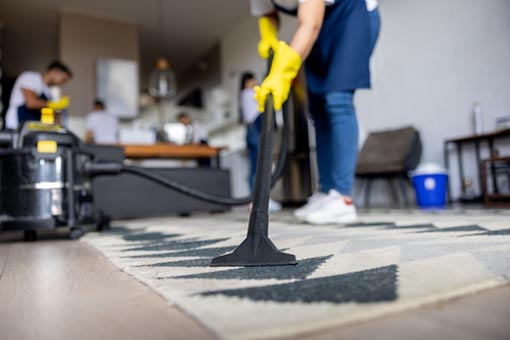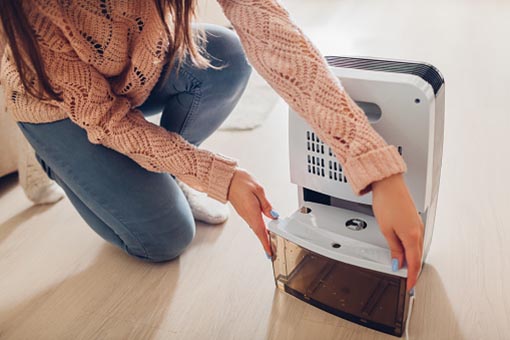HVAC Expert Shares Top Indoor Air Quality Mistakes Homeowners Make
Expert Covers Indoor Air Quality Do’s and Don’ts
Depending on the season, homeowners need to regularly tinker with their thermostat settings for year-round comfort. Because the weather is mild during spring or fall, people can open the windows and rely on their HVAC system less. Meanwhile, summer and winter can often cause issues for indoor air quality (IAQ) since extreme temperatures also mean keeping the home sealed up—to retain the air conditioning through summer and the heat in winter.
It’s easier to achieve good indoor air quality if you don’t make the same common mistakes homeowners can make. Service Experts Heating, Air Conditioning & Plumbing Chief Operating Officer Cary Reed covered several of these missteps and how you can avoid them.
Not Changing Air Filters Regularly Enough

Changing your air filters minimizes the dust, allergens and other airborne contaminants hiding in your home. For people with allergies, neglecting to change air filters regularly could aggravate symptoms like sneezing, watery eyes or even result in trips to the doctor. If you’re committed to using the right filter for your specific system and preferences, learn the basics about the Minimum Efficiency Reporting Value ratings system, commonly shortened to MERV, Reed suggested.
“It’s based on a 1 to 20 scale, so ratings in the middle of that range are usually the higher quality home filters,” Reed said. “And, if you struggle to stay on top of filter replacement, I’d suggest duct cleaning service too. Once that’s done, establish reminders so you know when it’s time for air filter replacement”
Neglecting HVAC Maintenance
Skipping preventive HVAC maintenance is another common misstep toward compromising your indoor air quality, Reed added. An annual checkup for your HVAC system ensures it functions efficiently and helps to prevent major repairs in the future. Along with checking electrical connections and the refrigerant supply, tune-ups offer cleaning coils and heating elements wherever air passes through before moving through the rest of your home. When systems aren’t running correctly, dust or moisture may accumulate and become the starting point for pollutants making it indoors.
Using Products that Pollute the Air Unknowingly

Homeowners are often surprised to learn that many common products could be compromising their health and air quality. Here are a few ways homeowners might be impacting their indoor air quality without knowing it. The first is by bringing in aggressive cleaners that give off fumes and what are known as volatile organic compounds (VOCs). Whenever possible, opt for a green cleaner instead, Reed suggested.
“Candles are also a common air pollutant,” Reed said. “Despite having nice scents in the home, this is not the best option. I even caution against many air fresheners.”
Another way people pollute their home’s air quality inadvertently is with indoor plants that may cause allergy symptoms. The Ogren Plant Allergy Scale (OPALS) is a simple 1 to 10 scale that is widely used to determine a plant’s potential for worsening symptoms for allergy sufferers.
“There are many choices that are considered great indoor plants such as ferns, ivy, fig and yuccas, but these plants can also trigger allergy symptoms. It’s always smart to do your research before adding a bunch of indoor plants,” Reed said.
Ignoring Mold and Humidity Problems

Excessive humidity in a home can promote mold and bacteria growth, which in turn could compromise indoor air quality. If you discover a plumbing leak and water is collecting in the walls or another area of your home, repair it as soon as you can, Reed cautioned. Humidity is often when the growth of mold starts, particularly when you live in a more humid part of the country.
When you notice a musty smell coming from somewhere, that’s a sign moisture may be trapped somewhere. Some homes also struggle with issues with either too much or too little moisture in the air, which usually means adjusting humidity levels with a humidifier or dehumidifier, Reed added.
Not Opening the Windows When Possible
While it’s certainly more difficult to keep the windows open during a cold snap, there is still much of the year when opening windows and letting in fresh air is a good idea. Not only is it beneficial for in-home air quality overall, but it can even reduce radon levels. This radioactive gas is naturally released from soil. In fact, purchasing a basic detector to monitor gas levels is a worthwhile investment, especially when high radon exposure is responsible for roughly 21,000 lung cancer deaths annually, as reported by the CDC.
To refresh indoor air even when it’s cold outside, use those midday temperature highs to crack the windows in rooms and other spaces. And for summer, open them first thing in the morning when it’s cooler to refresh your indoor air, Reed suggested.
Not Using Technology and Services that Can Help
Even if your home has “problem air” because of excessive humidity levels, mold, bacteria and other airborne particles, there are still lots of solutions, explained the HVAC pro.
One option includes installing germicidal UV light lamps, installing them inside the HVAC system to kill bacteria, viruses and other microbes within seconds. Others use dedicated ventilation systems that swap out stagnant indoor air for fresh air, or whole-home air purifiers that can assure you enjoy a constant flow of fresh, clean air indoors.
“Any air quality expert can also conduct testing to help you fully understand the depth of the issue,” Reed said. “Similar to HVAC system maintenance, ignoring these problems only makes them worse in the future. Thankfully, there are many ways to solve air quality concerns.”
For more ideas on how to enhance your home’s indoor air quality, visit ServiceExperts.com/indoor-air-quality or request HVAC maintenance today.
